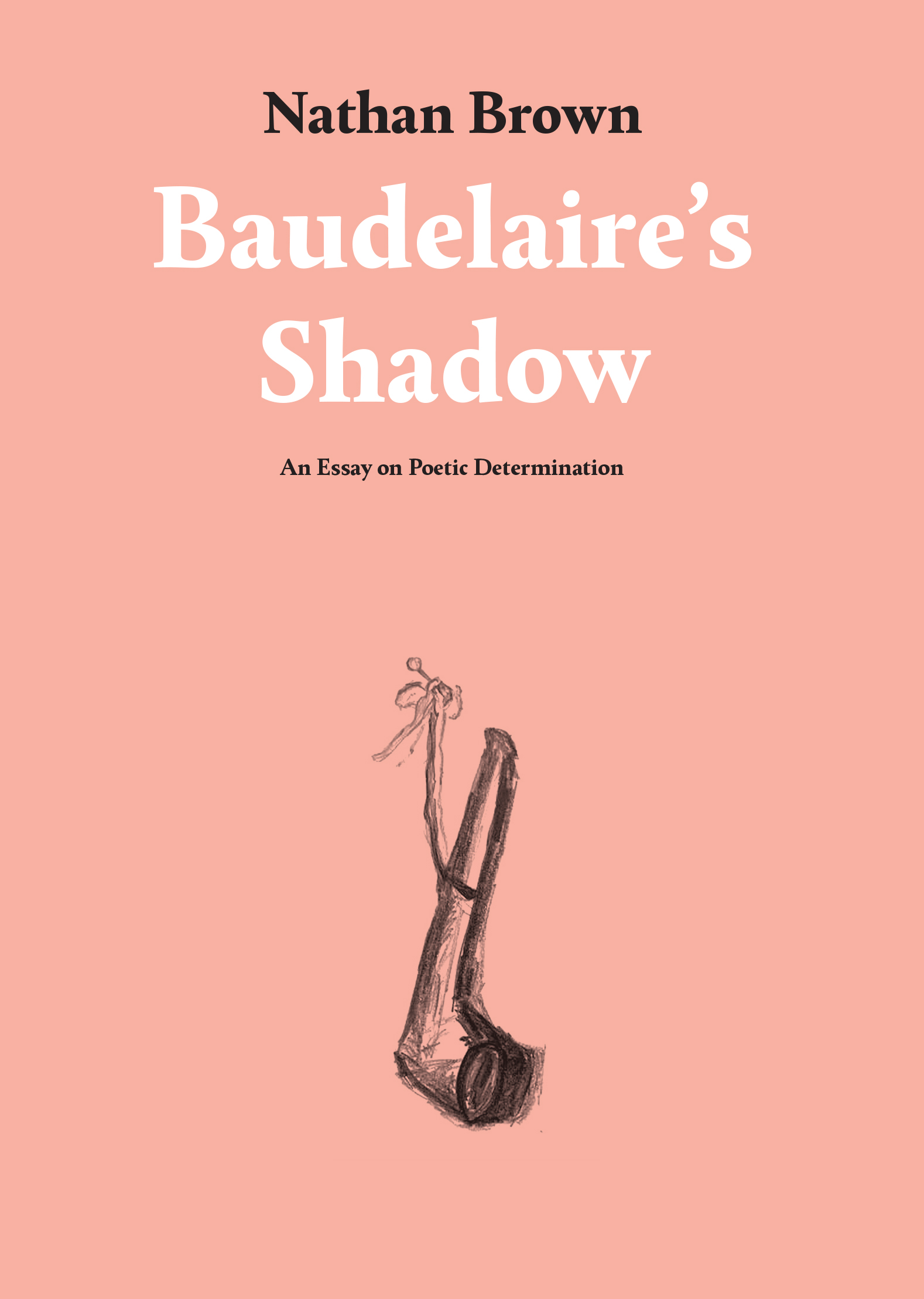A central, inescapable contradiction runs throughout The Flowers of Evil: to be determining is to be determined. In Baudelaire’s Shadow, Nathan Brown elucidates and theorizes this dialectical problem of determination as it works across the spiritual, sexual, metaphysical, social, and aesthetic dramas of Baudelaire’s volume. Combining close formal analysis of particular poems with a synthetic grasp of the book as a whole, while developing a philosophical approach capable of grappling with its complex ironies, Brown studies figures of mediation across chapters focused on death, the void, the actuality of the social, and the materiality of the signifier. Each of these thematic and conceptual cruxes, he argues, can be understood in terms of a dialectic of determination—of agency bound up with its negation—functioning at the level of both form and content.
Brown shows that such an approach clarifies the stakes of Baudelaire’s Romantic Satanism, his treatment of race and eroticism, the conceptual relation between Spleen and Ideal, the significance of ekphrastic representation and apocalyptic imagination, the use of free indirect discourse, and the ambiguity of metaphorical reference. Written as a continuous essay in a style at once poetic and philosophically rigorous, Baudelaire’s Shadow sheds new light on The Flowers of Evil and its significance for our understanding of modern poetry and subjectivity.
***
“Can we draw from an account of what happens in the poem an account of the way it works?” This seemingly simple question prompts a disarming after-image, rather like having the awareness, while dreaming, that you’re dreaming. Nathan Brown’s question is at the heart of his project. With a kind of omniscient curiosity, Brown probes so deeply into the metaphysical bestiary of Les Fleurs du Mal that he can emerge from its cavernous depths with an armload of dripping seaweed named Kant. Wonders never cease in this sumptuous, even clairvoyant, examination— one that could only be carried out by the complete traversal of a text not only read but translated in full. This unprecedented doubling of roles, as translator and exegete, is a veritable marvel.
— Jed Rasula (Helen S. Lanier Distinguished Professor of English, University of Georgia)
***
Nathan Brown is Associate Professor of English and Canada Research Chair in Poetics at Concordia University, Montréal, where he directs the Centre for Expanded Poetics. He is the author of Rationalist Empiricism: A Theory of Speculative Critique and The Limits of Fabrication: Materials Science, Materialist Poetics. His translation of Baudelaire’s The Flowers of Evil was also published by MaMa in 2021.
